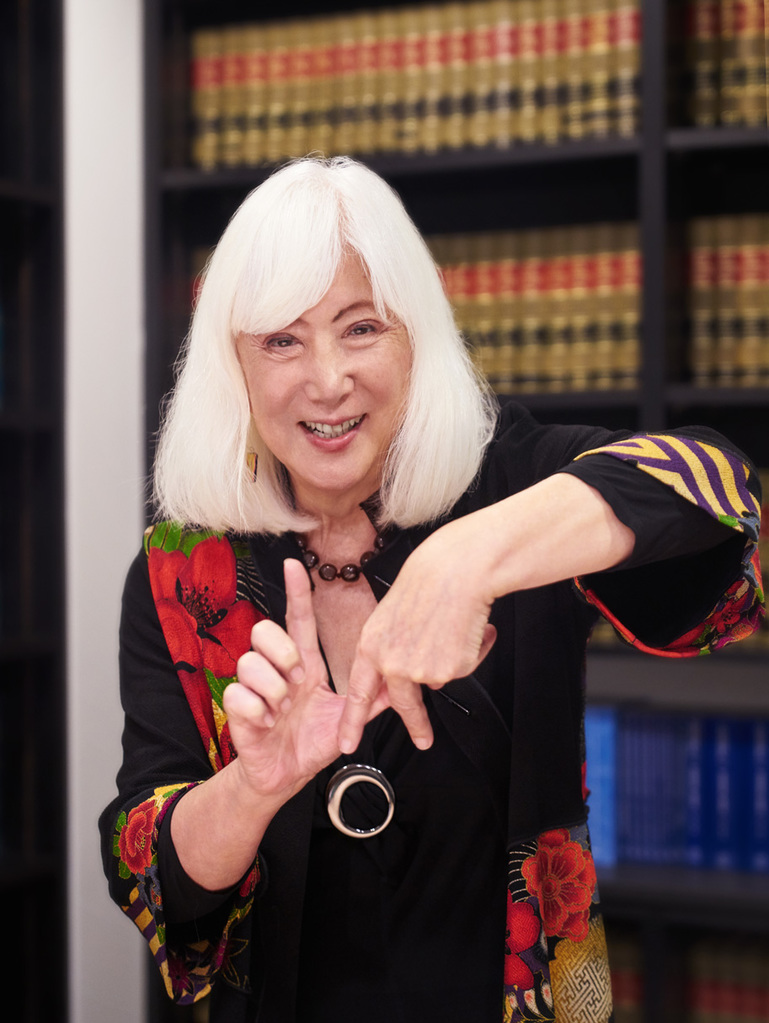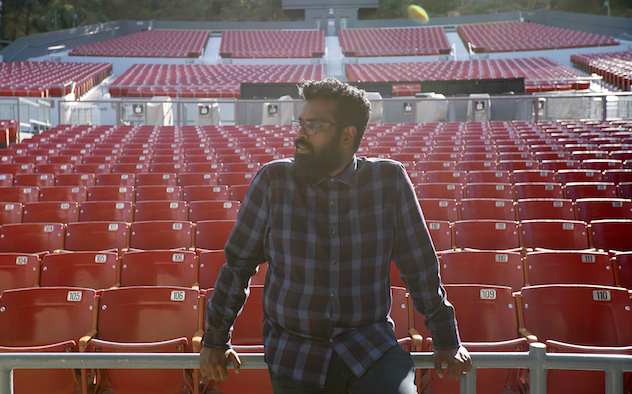For Mia Yamamoto, courage is telling the truth.
Her life serves as testament. Born in a Japanese internment camp in Poston, Arizona, Yamamoto — born Michael — combated racial and discriminatory injustice as a civil rights activist and public defender for years. After establishing a private practice, she transitioned to Mia and has since been one of Los Angeles’ most vocal advocates for the rights of the LGBT community.
Yamamoto grew up watching her father, Elmer, run into racial barriers. Despite being Loyola Law School’s first Asian American graduate in the 1930s, and a lawyer for social justice organizations like the NAACP and the ACLU, he practiced in a segregated bar his entire career until his death in 1957, just four years shy of bar integration.
It wasn’t until after his passing that Yamamoto really came to understand the impact of her father’s work. Locals would come by the house years after his death with cantaloupes, lettuce and other produce to thank Elmer for helping them despite their inability to pay him.
“I was really touched by that,” Yamamoto said. In some ways, her father became a role model to her because of it, “in terms of what it would be to live a moral life, being a person that contributed as opposed to detracted.”
In the ’60s, serving in the U.S. Army during the Vietnam War, she applied to law school at the University of California, Los Angeles. Determined to organize the community, help the poor and be a part of the civil rights movement, she co-founded an Asian law students association.
“From that point on, I always saw it as my place to make space for other people, to carve out spaces where people are welcome,” Yamamoto said.
At Legal Aid, she took a job as a poverty lawyer for three years post-graduation before moving on to 10 years as a public defender. All the while, she said, she struggled with her identity, first as a Japanese American who had internalized having started life in discrimination-based imprisonment, and second as a person who had known since childhood she was transgender, but afraid to face the cruelty of further alienation.
Yamamoto recalled being a child and showing her mother a newspaper article about a transgender woman, and telling her, in relief, that there was somebody else in the world like her. “Having your mom break down and cry, that drives that underground,” she said. “It drives it to a place in which it can’t be seen and you have to hide it.”
It wasn’t until 2003 that Yamamoto, who had by then set up her practice as a criminal defense attorney, transitioned. By then, she was already a prominent lawyer recognized many times over for her advocacy on race and criminal justice. Transitioning “took commitment to truth,” she said. “I really believe people have the right to be real, even if they have to pay the consequences for it. I was fully willing to do that.”
She was on a death penalty case at the time. In court, worried her transitioning might affect her client in any way, she told the judge about her situation. If it was going to be a problem, she would leave the case. “I invited the scorn and rejection,” she said. The judge, who empathized after having read an article about Yamamoto, teared up instead. Many of her colleagues stood by her.
“I said, ‘If they’re going to do it to somebody, they might as well do it to me,’” she said. “I at least have the language and the words. I’m strong enough to stand up to it.”
Her work continues. She co-founded the Multicultural Bar Alliance, a coalition of minority, women’s and gay and lesbian bar associations, and has led a handful of organizations, including the California Attorneys for Criminal Justice, the Japanese American Bar Association and the Asian Pacific American Women Lawyers Alliance.
She also serves on the board of directors of International Bridges to Justice, a non-profit that brings basic legal rights to individuals across the world. Yamamoto helped Karen Tse, its founder, human rights attorney and her mentee, with the inception of the organization in 2000.
Yamamoto believes firmly in sharing her skills and experiences with younger lawyers who share her vision of helping other people.
“Part of making a difference is not just doing a good job, it’s about imparting your knowledge and gathering with others to make a pool of your experiences and ideas. That has a tendency to drive everyone toward excellence,” she said.
This article is a part of a series of portraits and stories, in celebration of Asian Pacific American Heritage Month, on API women who use their perspectives and voices to speak up and impact their communities. Read more here.







